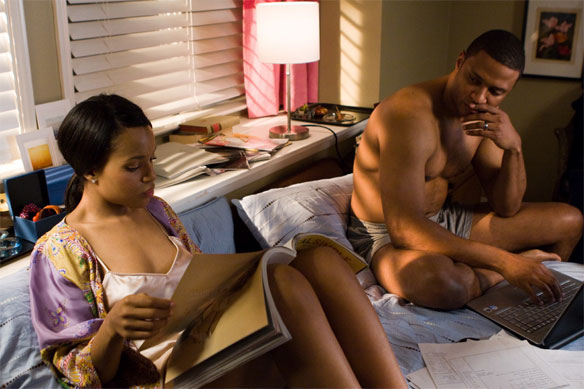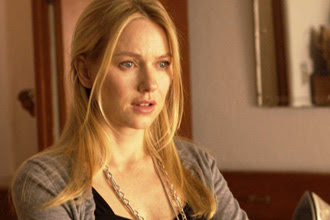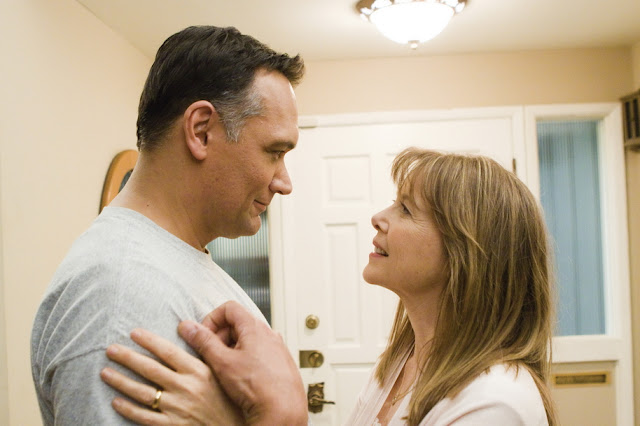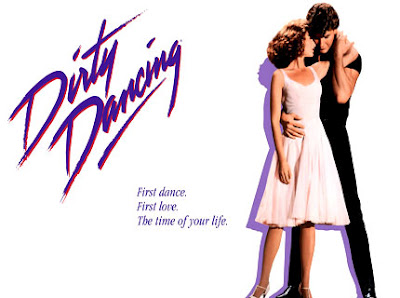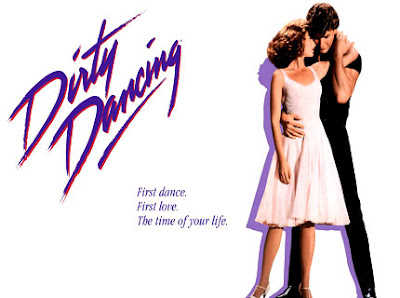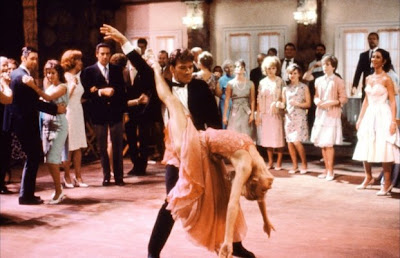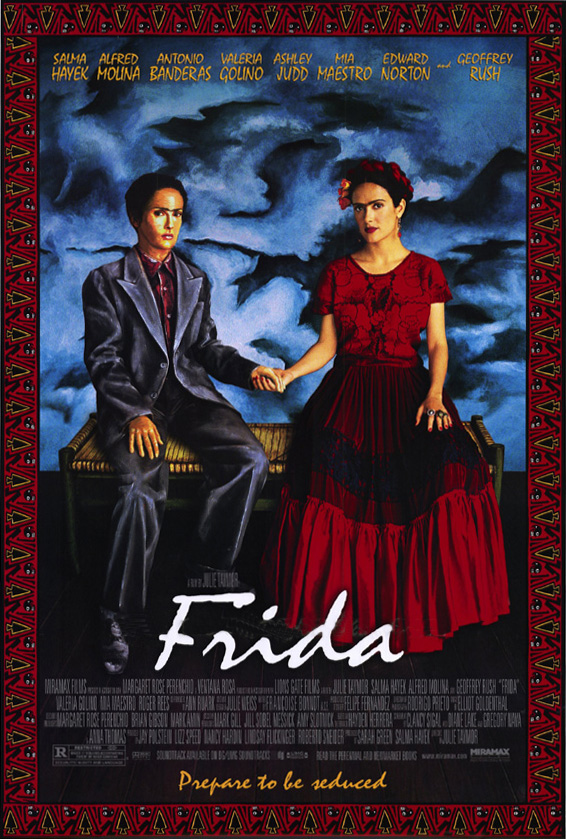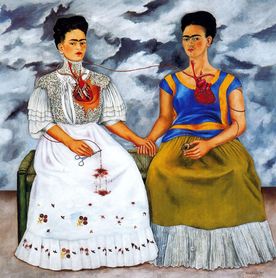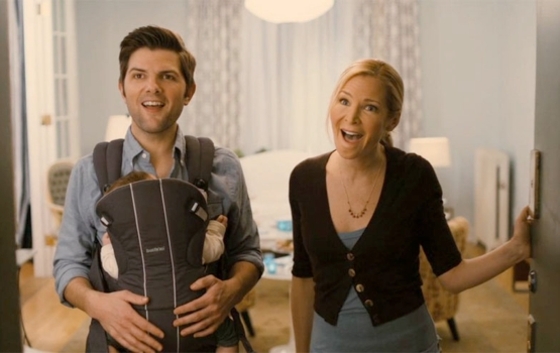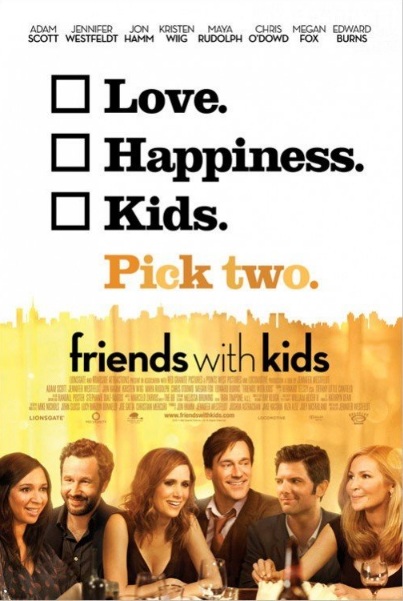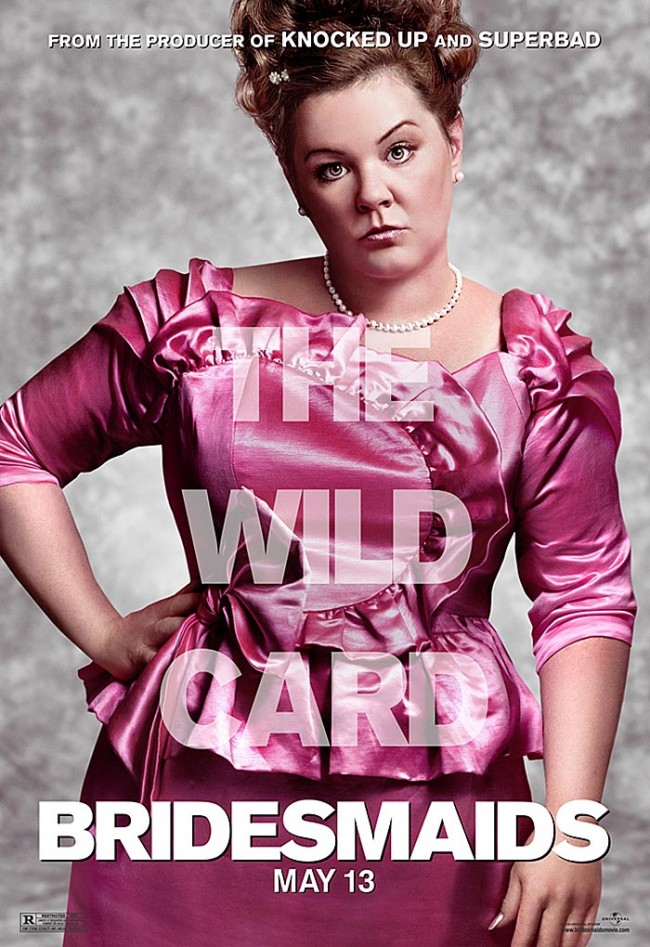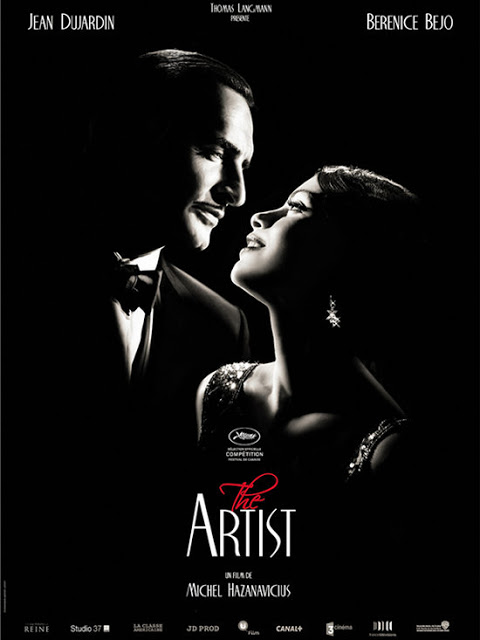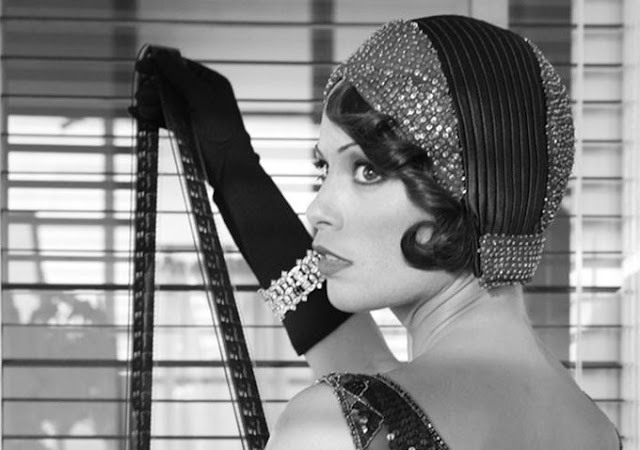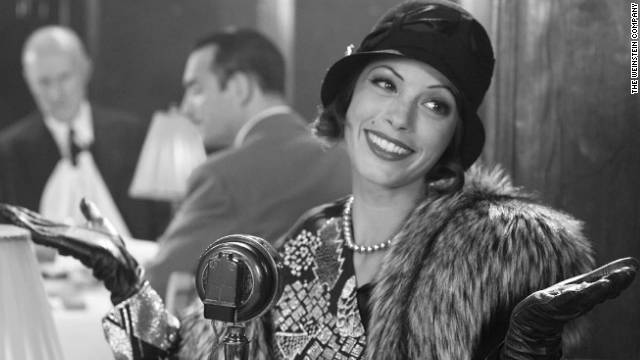This cross-post by Didion originally appeared at Feminéma.
Okay, you know me: I have the whole snarky thing down. I’ve never even seen
Forrest Gump or
Titanic. I can barely bring myself to
watch a trailer for a film starring poor Katherine Heigl. I’d rather re-watch that 2-hour, grueling, and explicit film about illegal abortion in Romania — it was excellent – than submit myself to 30 minutes of the Julia Roberts feature,
My Best Friend’s Wedding. So what’s the deal with my weakness for
Practical Magic, which gets only a
20% approval rate on RottenTomatoes.com?
Confession: I’ve probably seen it 10 times.
 |
| Sandra Bullock as Sally Owens in Practical Magic |
I’ll grant you the obvious: this is not quality filmmaking or screenwriting. The
list of goofs and continuity errors is long. The background music is annoyingly cheery and sentimental, even during scenes when it shouldn’t be. It claims to be set in a Salem, Massachusetts-type place but is obviously filmed using the dramatic coast and sunsets of the Pacific Northwest. The film keeps cycling back to themes of love and loss and longing, like any Katherine Heigl film. The resolution to the characters’ problems — an ancient curse on this family of witches — is completely inexplicable. I know. But it always gets past my radar, and I seem to keep coming back.
My latest viewing of it prompted me to wonder about guilty pleasure films.
Why should I feel so embarrassed and apologetic about liking this film? What is it about liking this unabashed chick flick that makes me feel sheepish to confess it? Why does liking this film make me wonder whether I might have some kind of tumor growing smack on my frontal lobe?
(Spoiler alert: at some point below I’m going to talk about That Great House. Also: if you’re eager to know my two favorite insights, get down to the last half of this post.)
Now, there are lots of reasons to like this film. First: the cast. Stockard Channing and Dianne Wiest as the kooky old witch-aunts who raise the orphaned sisters Sally (Sandra Bullock) and Gilly (Nicole Kidman). Oh, to have aunts like Channing and Wiest!
 |
| Stockard Channing as Aunt Frances and Dianne Wiest as Aunt Bridget |
Moving on, the men-folk are all superbly gorgeous and desirable: Aidan Quinn, Goran Visnjic (slurp!) as the bad boy, and the total mensch Mark Feuerstein as Sally’s short-lived husband. Even Sally’s little daughters (Evan Rachel Wood and Alexandra Artrip) manage to be believably appealing.
 |
| Goran Visnjic as Jimmy Angelov (really) and Nicole Kidman as Gillian Owens |
Also,
no one should underestimate Sandra Bullock’s appeal. The critic
David Thomson jokes that she’s been inducted into the Hall of Eternal Likeability. This induction occurred in 2009, Thomson quips, when Bullock won an Oscar for Best Actress (for
The Blind Side) and a
Golden Raspberry (aka “Razzie”) for Worst Actress (in
All About Steve) — and she appeared at both ceremonies “with the same easygoing attitude that guesses she didn’t quite deserve either award but that knows her life has always been something of a gamble.”
I’ve always liked Bullock, and have a particular weakness for her skills in slight rom-coms (While You Were Sleeping; Miss Congeniality), again in spite of myself. How does someone possessed of such exceptional beauty seem to be someone I’d be friends with? How does she manage to seem convincingly the ugly duckling for even one second? How does she nevertheless seem to be at ease in her own skin?
Two things I always notice in Practical Magic: she goes bra-less in most of the scenes. And although she’s thin as a rail (of course), her body looks real — especially her big, strong legs. Who wouldn’t like a beautiful woman with healthy-looking thighs who skips the bra most of the time?
Okay, now that I say that out loud, I’m starting to see where some of my sheepishness comes from.
 |
| Bullock and Aidan Quinn |
Just because I like all the actors is no guarantee I’ll like a film, however. Lots of good actors have appeared in terrible films. Remember my refusal to see Titanic despite the fact that it stars Kate Winslet, who’s in my Top 5 current favorite actors?
*****
In thinking about my perverse attachment to an ostensibly weak film led me to scour The Land of Blogs for insight, and here’s what I found: us ladies love that house. Love it.
This very fact makes me embarrassed … because I’ll admit I love that house too. Shouldn’t I feel like I’ve been manipulated?
 |
| That House! |
Now, just because a girl confesses a propensity for nest-building and a weakness for a good kitchen should not make you presume she wants nothing but housework and a hubby who brings home the bacon. Virtually everyone I know has found themselves susceptible to the house porn shown to us on those real estate, cooking, and bedroom re-design shows on cable TV. And when I call this porn I fully admit to have had unholy desires for that one hunky handyman who seems to know his way around every power tool known to man. So yeah, I love this house — and I’m not the only one.
 |
| That kitchen! |
Entire websites appear to be dedicated to screen capture shots of the kitchen and/or attached greenhouse. I get it. Who wouldn’t want all that great tile, lots of cupboards, big central kitchen table, and that awesome stove?
There’s so much room here for those kinds of decorations you could never be bothered with because you’re a Busy And Important. Big wooden bowls of pears or round loaves of bread. Cunning little bottles of herbs and witches’ potions. Scattered potted plants that need to be kept alive somehow. This is not the kind of house I could manage (or clean) in real life.
But I think the reason why this kitchen/ greenhouse/ dining area has hit some kind of world-wide Lady G-Spot is because these rooms are the location for so much of the film’s drama. Just like in real life, except these settings are a lot more attractive than our cramped kitchens. Gilly and the little girls whip up a Go Away spell to put into the maple syrup; Gilly and Sally try to bring the terrifying Visnjic back to life (with a spray-can of whipped cream, I say as I shake my head woefully); Sally and the hunky Arizona investigator Aidan Quinn have a special moment in the sunroom/ greenhouse.
 |
| The greenhouse! |
(Mental note: must procure sunroom/ greenhouse so I, too, can have special moments with Aidan Quinn.)
I’m joking, of course. Although some bloggers seem eager to transform their own homes into Practical Magic-style palaces, I say that sounds like too much work. In fact, this leads to my most important insight: no matter how appealing, that house doesn’t fill me with consumer desire — I like the idea of the house, and I like it for reasons other than the fact that it looks good. Another film might have used the same house and sunroom and still failed to capture people’s imaginations (i.e., mine).
*****
So here’s my big realization: this film gets me every time because it portrays such rich and important relationships among women, even when they’re flawed. The warmth of the house matters when Sally and Gilly lie under the covers together, healing one another’s wounds, or when they go to the kitchen to exorcise demons. Ultimately the reason I like the house is the fact that I am so impressed that the film takes for granted the intense connections amongst this group of women.
 |
| Sisters Sally (Bullock) and Gilly (Kidman) |
The house feels so warm and comfortable because that’s where the film portrays the most important plot points, bringing together the warmest of relations between the characters. It’s those moments in the film that get me every time. Scenes that convey the close communal and familial relations that encompass a kind of closeness that isn’t reducible to something as simplistic as “love.”
There’s a hard edge to some of this as well. Women who are very close to one another also piss each other off, or they say things that hit nerves even if they have no intention of hurting anyone. One of my favorite random scenes in the film, in which they all blend up some Midnight Margaritas and dance around the house (who hasn’t been there?) is immediately followed by a scary scene at the dinner table, when no matter how good their mood, none of them can keep from spewing bile at one another — and it takes a while for them to realize the ugliness of this weird moment.
Ah, the scene of female bonding and mutual support … and pissing each other off. Was there ever a time when I didn’t imagine growing old, living in a big house (or neighborhood) with my sister and a bunch of my best old-lady friends, all cooking and gardening and exercising together? I remember being stunned to learn that every single one of my friends has the same fantasy. It’s not that we don’t like men — some of us are partnered up with them, after all. It just seems so natural to have tight, mutually-constitutive relationships with women, especially as you grow older.
 |
| The Aunts (Wiest and Channing) |
All the more eerie to find that this film explicitly imagines that scenario for its characters, too. “We’re gonna grow old together!” Gilly says to Sally when they’re teenagers, on the night when Gilly is about to run off with some guy, and the unglamorous Sally stands there in her awful bathrobe, stringy hair, and gigantic glasses. “It’s gonna be you and me, living in a big old house, these two old biddies with all these cats! I mean, I bet we even die on the same day!” Tell me, isn’t that your secret dream, too?
For Sally it is. “Do you swear?” she asks her sister.
 |
| Sally |
In the end I think it is that female closeness that gets me about this film and which makes me slightly embarrassed to admit it — because I suspect that by using some kind of dark magic, the filmmakers cooked up a heady brew of fine men-folk, house porn, and scenes like Midnight Margaritas explicitly to fly under my critical radar and keep bringing me back. I fear my uncritical affection for this film because it feels manipulative to me, not a genuine dedication to women’s relationships and good houses above & beyond women’s relationship to men. I feel embarrassed that what I had long believed was an unrealistic and slightly embarrassing fantasy — that my friends and I would all grow old together — has been packaged into a very pretty filmic production for me to watch. Shouldn’t I feel all the more guilty about this pleasure?
*****
But there’s one other reading that works even better for me, and I lift this directly from the great documentary The Celluloid Closet. This insight goes something like this: I watch and appreciate Practical Magic not for what it is but for all that I read into it, all that speaks to me beyond the surface. I don’t see Midnight Margaritas as a throwaway scene or as instrumental for forcing Sally and Gilly to deal with their mistakes. I read into it a world of intense female closeness that I rarely get to see onscreen. What gives me pleasure in this film is what I imagine in between the lines of its essential mediocrity.
 |
| Sally and her daughters |
I remember so vividly Susie Bright, one of the commentators in The Celluloid Closet, describing how she spent her youth combing through old movies just to get to a single scene that seems a little bit queer. For LGBTQ persons who saw virtually no one who looked like them onscreen, “It’s amazing how, if you’re a gay audience and you’re accustomed to crumbs how you will watch an entire movie just to see a certain outfit that you think means that they’re a homosexual. The whole movie can be a dud, but you’re just sitting there waiting for Joan Crawford [in Johnny Guitar] to put on her black cowboy shirt again.”
 |
| Joan Crawford in Johnny Guitar |
This is ultimately the reading that allows me to feel pleasure in watching this film without much guilt. It’s discouraging to realize that on some level, what I get from Practical Magic is what I don’t get very often onscreen: happy, complex, and intense relationships among women that aren’t just about appearing sexy and finding a man. I very seldom get to see onscreen relationships that look like the ones I enjoy with my friends and family. Sure, the movie concludes with a happy kiss between Sandra Bullock and Aidan Quinn — not that there’s anything wrong with that — but I’m arguing that the whole package sparks a happy endorphin rush for far different reasons.
 |
| Yes, there is a romantic happy ending. |
And finally, let’s also not forget that this movie is about a family of witches. Witch being such a stand-in for bitch, as well as conveying all manner of notions about women’s powers, both dark and light. This film probably flies under my radar in part because it’s about women who possess powers that they can choose to use (or not). The false cheeriness of the music and the generally lame spells might well downplay as much as possible any sense of real danger — and probably seek to undermine objections from crazed evangelicals who might see this film as the work of the devil. Nevertheless, I’d argue that the subject matter can’t help but speak about power.
I see it as metaphorical. This is about women’s power — and their power in numbers. I may be trying very hard here to stop feeling so guilty about my appreciation for this film, but this works for me:
- terrific cast
- eminently likeable lead
- great range of attractive men-folk
- fantastic house
- rich portrayals of women’s relationships
- the movie facilitates queer readings against and/or alongside its mainstream messages
- it’s about women’s power, and their power in numbers
I welcome your thoughts, quibbles, and good-natured derision for my poor taste in film!
Feminéma
is a blog about feminism, cinéma, and popular culture kept by Didion, a university professor in Texas, who celebrates those rare moments when movies display unstereotyped characters and feature female directors and screenwriters behind the scenes. Most of all she just loves film. Take a look at feminema.wordpress.com.
